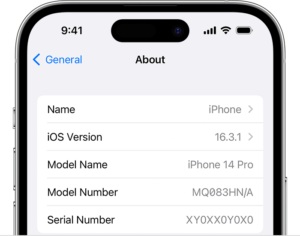Exploring the Benefits and Uses of a Web Proxy

In today's digital age, privacy and security are more important than ever. As we browse the web, our data is constantly being sent back and forth between our devices and various websites. This can expose us to risks such as data theft, surveillance, or restricted access to certain content. A web proxy can serve as a helpful tool to mitigate some of these challenges. By acting as an intermediary between your device and the internet, it offers both security and anonymity.
What is a Web Proxy?
A proxy server works by sitting between your device and the internet. When you want to visit a website, instead of connecting directly to it, your request first goes to the proxy server. The server then forwards your request to the website, retrieves the necessary information, and sends it back to you. From the website's perspective, it sees the proxy server’s IP address rather than your own, which helps protect your identity and online activities.
This process not only hides your real IP address but also makes it harder for third parties to track your online habits. For individuals seeking to maintain privacy or circumvent geographical restrictions, using a web proxy can be an effective solution.
Why Should You Use a Web Proxy?
There are several compelling reasons why you might choose to use a proxy server. Some of the most common benefits include enhanced privacy, improved security, and the ability to access blocked content.
1. Privacy Protection
When you connect to a website, your real IP address is exposed, revealing your location, internet service provider, and sometimes even your identity. A proxy helps to conceal this information by masking your IP address. As a result, websites are unable to gather personal details such as your geographic location or browsing behavior. This is particularly important if you are concerned about data privacy or wish to remain anonymous while browsing the web.
2. Bypass Geographical Restrictions
Many websites and online services are region-locked, meaning they are only available in specific countries or regions. For example, streaming platforms may restrict access to certain movies or shows depending on your location. By using a proxy server based in a different region, you can effectively bypass these geographical barriers and access content that would otherwise be unavailable to you.
3. Security Enhancements
A proxy server can also help improve your security online. It acts as a gatekeeper between your device and the internet, which can be particularly beneficial when using public Wi-Fi networks. Public networks are notoriously insecure, making it easier for hackers to intercept data. A proxy adds an additional layer of protection by routing your traffic through a secure server, reducing the risk of cyber-attacks such as man-in-the-middle attacks.
4. Accessing Blocked Websites
Some networks, such as those in schools or workplaces, may restrict access to certain websites for various reasons. If you need to access a site that is blocked, a proxy can help. By using a proxy, you can circumvent these restrictions and browse freely, without being limited by network administrators.
5. Control and Monitoring
For businesses, proxies can provide a way to monitor and control internet usage on company devices. They allow administrators to block certain websites, track employee internet activity, and ensure that the network is being used in a secure manner. This can be particularly useful for maintaining productivity and preventing access to harmful or distracting sites.
Types of proxy server
There are different types of proxy servers, each offering varying levels of privacy and security. Some common types include:
- HTTP Proxy: This is the most basic form of proxy and is typically used for browsing websites. It only handles web traffic over the HTTP protocol, which means it does not secure other types of internet traffic.
- HTTPS Proxy: This is a more secure version of the HTTP proxy, encrypting traffic between your device and the proxy server. It is ideal for secure browsing, especially when dealing with sensitive information.
- SOCKS Proxy: Unlike HTTP proxies, SOCKS proxies can handle a wider range of internet traffic, including torrents, email, and other types of communication. They are highly versatile but do not offer encryption by default.
How to Choose the Right Proxy?
When selecting a web proxy, it is essential to consider factors such as the level of anonymity you need, the type of content you wish to access, and the overall speed and reliability of the service. Some proxies provide free access, but these may come with limitations such as slower speeds or limited security features. On the other hand, paid proxy services tend to offer more robust features, including faster connections, higher security, and a broader range of server locations.
It’s also important to choose a reputable provider. Some free proxies may sell your data or inject ads into your browsing experience. To ensure your safety and privacy, it’s worth investing in a trusted, paid proxy service if security is a top priority.
Conclusion
A web proxy can be a valuable tool for anyone looking to enhance their online privacy, access restricted content, or improve security while browsing the internet. By masking your IP address and routing your traffic through a secure server, it provides a simple yet effective way to safeguard your digital footprint. Whether you're looking to browse anonymously, protect your personal data, or access content from different regions, using a proxy server can offer significant advantages.





